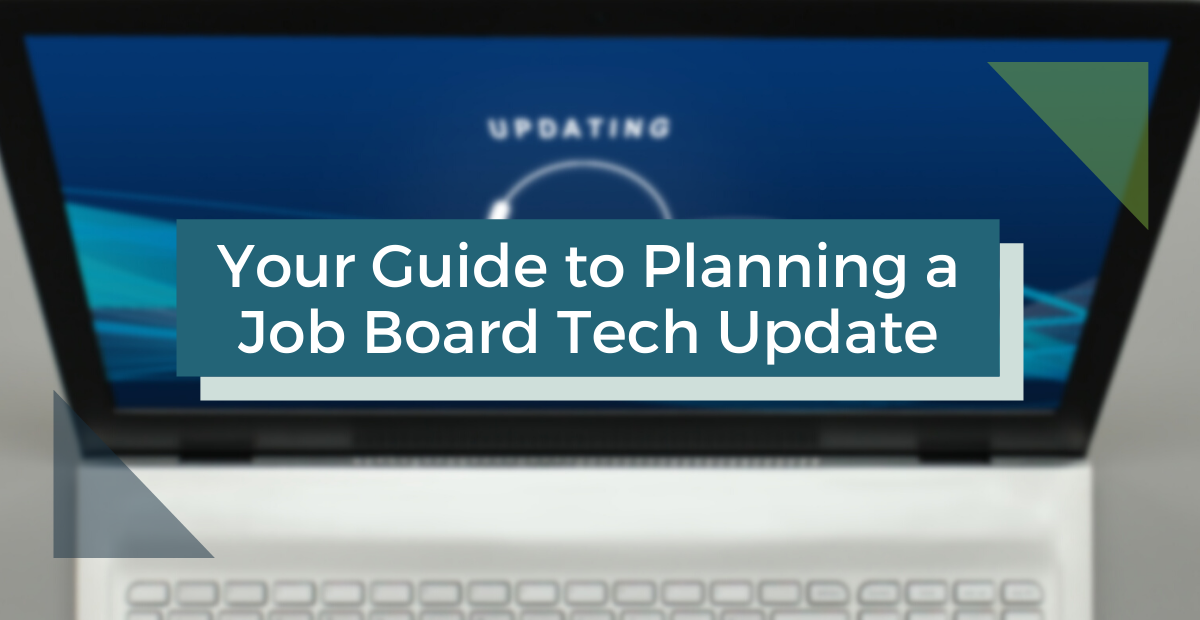The online recruiting industry is a big and bustling place, full of competition, but small job boards that are niche have a lot going for them.
Many new job boards can find themselves struggling to stand apart from both older, more established job boards and those mammoth-sized, generalist platforms. One of the questions we encourage job board entrepreneurs to ask themselves is, “Am I niche enough?”
This blog post will outline how new job boards can think about being niche, explore ways to further specialize, and highlight a few helpful tools that may help.
How to Get Nichier
If your chosen niche is too broad (for example, a whole industry), your first step may be to look for patterns and trends among your jobs, customers, and candidates. Let’s take a look at some dimensions you can explore in your quest to get nichier.
- Industry and Job Function: These are very likely your first steps towards going niche, but don’t neglect the possibilities of combining the two. Many types of jobs are found across industries, so look for high demand or under-served combinations. (For example, accountants in the nonprofit sector, or event planners in the hospitality industry.)
- Region: This is probably the best way to get more niche. Instead of trying to conquer the globe or your entire country, try starting with a city or a state/province/county with which you already have some experience and familiarity, or where it’s possible for you to do in-person networking, promote your job board, and build relationships.
- Contract Types: I suspect this will continue to be an important way that both candidates and employers will narrow their searches for jobs and talent. Part-time jobs, summer jobs, internships, seasonal work, freelance/short-term contracts, or shift work are all examples of types of work contracts.
- Pay Categories: Similar to contract types, but still worth exploring as a potential niche factor, is types of pay. Recruiting hourly workers vs contractors and freelancers can be quite different, as can recruiting for those getting paid $40-$60k per year vs those in the $200-$300k pay bracket.
- Qualifications: Many jobs (like driving, construction, engineering, childcare, etc.) require specific types of certifications or licenses. In other cases, employers may prefer candidates with particular types of backgrounds. For example, an employer hiring for a finance role may want someone with a degree in statistics over one in business, or a business communications job may benefit from someone with a liberal arts degree.
- Personal Traits: This is where you can really get creative. Some people may have specific needs or interests, and that may cross over with certain demographics.
- Demographics: Employers today are increasingly conscious of workforce diversity and may need help reaching and recruiting women, people with disabilities, and minorities or marginalized groups (for example, LGBTQ people, or people belonging to specific ethnic or cultural groups).
- Past Experience/Personal Interests: Switching careers is pretty common today, so why not target a particular type of transition, such as former athletes turned writers, or former educators turned financial advisors. Certain hobbies and passions might also be a great way to harness a particular market – some online gamers might take to quality assurance work, or cosplayers might find careers in the fashion industry.
- Specific Work Needs/Preferences: Many claim that we’re in a candidate’s market today and top talent will go after the opportunities that suit their lifestyles. Focusing on employers that offer remote work, flexible hours, work/life balance, or great healthcare plans could be a great way to go more niche.
- Employer Traits: It’s not just about what candidates want, and looking for things that make some employers distinct, their size and type of business, or on particular types of hiring paint points can help you narrow your target market.
- Values: Some organizations pride themselves on being environmentally-friendly, committed to diversity, or being socially conscious and encouraging volunteerism among its employees. Or maybe their whole thing is on-site catering and ping-pong tables. These employers want to connect with candidates who will share their values and enjoy their culture.
- Size and Business Needs: There can be big gaps between small-to-medium sized businesses who are relying on email and spreadsheets to organize their recruiting, and large companies with lots of roles to fill but need to get targeted exposure to their jobs. Focusing on solving the problems for a particular type of employer is a good way to go niche.
- Hiring Gaps: What are the types of problems that employers in your niche are experiencing? Whether it’s employee retention, poor candidate experience, or employer branding, addressing these pain points can help you specialize.
Tools to Research Your Niche
Research tools:
- Google’s Ad Preview Tool lets you preview what search results look like – you can enter keywords, and the location and version of Google being used (in Canada it’s google.ca, in the United Kingdom, it’s google.co.uk, etc.)
- Google Trends & Keyword Planner can give you insights into how popular certain keywords and searches are
- Stats & Demographics – Our guide to researching what social media platforms will be the most effective at reaching your target market has some tips and links to sites you can use to access demographic information.
- SEO Tools – SEO.com lists eight tools they suggest using to research your target market on the web.
We always love hearing about job boards discovering and establishing their niche. If you have a great niche job board story, drop us a line!




![6 Steps to Launching Your Job Board [Infographic]](https://www.careerleaf.com/wp-content/uploads/2017/07/6-Steps-to-launching-your-job-board-infographic.png)





